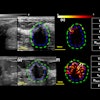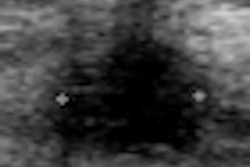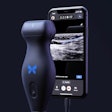Therapeutic ultrasound shows potential for use as a male contraceptive, according to research published on Monday in Reproductive Biology and Endocrinology.
A research team led by Dr. James Tsuruta, from the University of North Carolina at Chapel Hill, found that more than 2.5 months of contraception could be achieved in rats following two 15-minute sessions of therapeutic ultrasound performed two days apart.
During the sessions, the testes were placed in a cup of saline to provide conduction between the ultrasound transducer and skin. Rotating high-frequency (3-MHz) ultrasound around the testes then led to uniform depletion of germ cells throughout the testes, according to the researchers.
The testes were warmed to 37° C, which reduced sperm levels to a sperm count index of zero. Further studies are now needed to determine how long the contraceptive effect lasts and if it's safe to use multiple times, according to the authors.



















